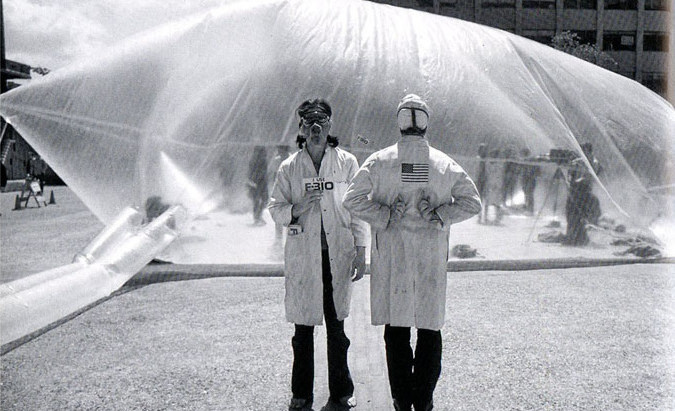Here in America–as in many other places in the world–we live in desperate times, barely capable of running our country despite great wealth, so the idea of us engineering new forms of life or even an entire universe seems beyond reason. Have we earned the right to play creator?
Freeman Dyson has written of a revolutionary vision for next-level space colonization, suggesting we design a baseball-sized, biotech Noah’s Ark that can “seed” the Milky Way with millions of species of life. “Sometime in the next few hundred years,” he’s theorized, “biotechnology will have advanced to the point where we can design and breed entire ecologies of living creatures adapted to survive in remote places away from Earth.” Dyson believes this scenario favorable to launching humans (as we know them) into radically unforgiving environments.
That’s mind-blowing enough, but some theoretical physicists takes matters a giant leap further, wondering if we can actually create new baby universes in vitro. Zeeya Merali, author of A Big Bang in a Little Room, has a smart Aeon article on the moral implications of “cosmogenesis.” She interviews Anders Sandberg, among others, on the thorny topic. The opening:
Physicists aren’t often reprimanded for using risqué humour in their academic writings, but in 1991 that is exactly what happened to the cosmologist Andrei Linde at Stanford University. He had submitted a draft article entitled ‘Hard Art of the Universe Creation’ to the journal Nuclear Physics B. In it, he outlined the possibility of creating a universe in a laboratory: a whole new cosmos that might one day evolve its own stars, planets and intelligent life. Near the end, Linde made a seemingly flippant suggestion that our Universe itself might have been knocked together by an alien ‘physicist hacker’. The paper’s referees objected to this ‘dirty joke’; religious people might be offended that scientists were aiming to steal the feat of universe-making out of the hands of God, they worried. Linde changed the paper’s title and abstract but held firm over the line that our Universe could have been made by an alien scientist. ‘I am not so sure that this is just a joke,’ he told me.
Fast-forward a quarter of a century, and the notion of universe-making – or ‘cosmogenesis’ as I dub it – seems less comical than ever. I’ve travelled the world talking to physicists who take the concept seriously, and who have even sketched out rough blueprints for how humanity might one day achieve it. Linde’s referees might have been right to be concerned, but they were asking the wrong questions. The issue is not who might be offended by cosmogenesis, but what would happen if it were truly possible. How would we handle the theological implications? What moral responsibilities would come with fallible humans taking on the role of cosmic creators?•
Tags: Zeeya Merali

